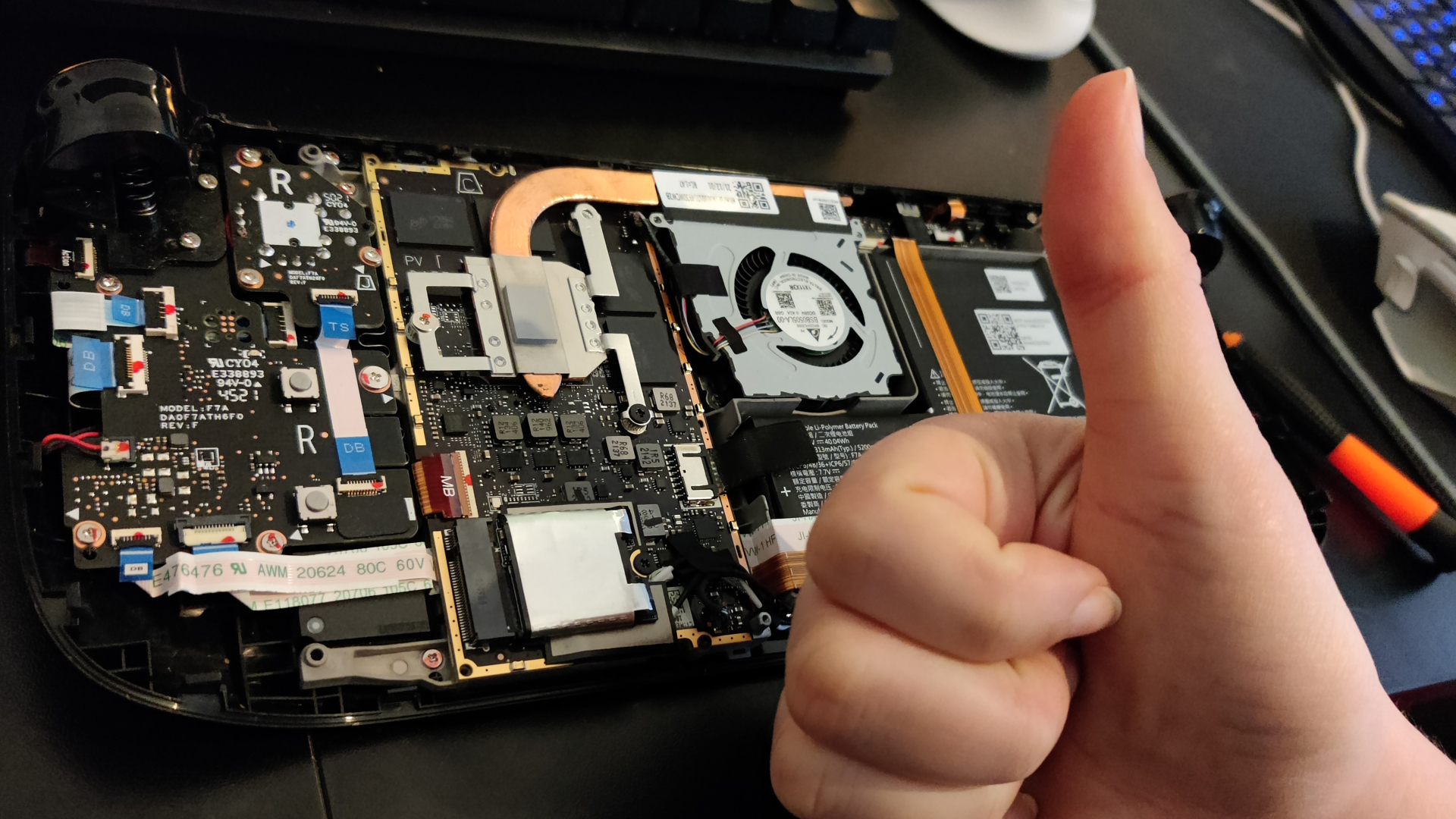California, the biggest state in the US when it comes to both population and the sheer volume of tech companies squeezed into its borders, has just passed the country’s most extreme right to repair bill in the US (via Ars Technica). It’s the third state to pass such a bill, but goes further than either Minnesota or New York in that it forces companies to support their products for longer. But while it will cover gaming PCs and laptops, games console manufacturers get a free pass.
The bill just has to go back to the Senate for a procedural vote, but having already pass wholly unanimous votes previously in both the state Assembly and the Senate, that should be a formality before it is finally signed by the governor. The bill will then join the other two bills, coming into effect next year.
In New York, the right to repair bill will come into effect in January 2024, while Minnesota and now California will see their own bills come online in July 2024.
Where the California bill stands out, however, is that it is requiring companies to support any product sold after July 1, which costs $100 or more for at least seven years. If a product costs between $50 and $99.99 then it only needs to have that support for three years.
The bill itself stipulates specifically that every manufacturer of products in those top price ranges should make the following available to owners of said products: “service and repair facilities, and service dealers sufficient documentation and functional parts and tools, inclusive of any updates, on fair and reasonable terms, to effect the diagnosis, maintenance, or repair of a product for at least seven years after the last date a product model or type was manufactured, regardless of whether the seven-year period exceeds the warranty period for the product.”
The same language is used for the three year support period, too. And, as you would expect, having co-sponsored the the bill, iFixit is rather pleased with the victory.
“The era of manufacturers’ repair monopolies is ending, as well it should be,” said Kyle Wiens, iFixit CEO, in a recent blog post. “Accessible, affordable, widely available repair benefits everyone. We’re especially thrilled to see this bill pass in the state where iFixit is headquartered, which also happens to be Big Tech’s backyard. Since Right to Repair can pass here, expect it to be on its way to a backyard near you.”
(Image credit: Microsoft)
It’s not just the US pushing on with right to repair bills either, as exemplified by Apple’s recent switch to a (surprisingly antiquated) USB Type-C connection for its latest iPhone launch. The EU has been driving forward with its own right to repair standardisation which mandates the use of Type-C and a similar seven year support structure for hardware, as well as a five year system for software updates.
This is all good news for the tech savvy, particularly in a world where hardware is getting ever more expensive and where sustainability has to be an important consideration for any new purchases. It’s one of the reasons the Steam Deck has been so popular, offering complete coverage for simple repairs itself through iFixit, and why the Framework laptops and mainboards are the bits of tech I’m most excited to play around with this year.
(Image credit: Future)
Steam Deck review: Our verdict on Valve’s handheld.
Best Steam Deck accessories: Get decked out.
Steam Deck battery life: What’s the real battery life?
There are exceptions, however, and it seems like games consoles are somehow exempt from this right to repair requirement. Guess someone’s been lobbying against the inclusion of consoles, eh? The bill itself talks specifically about an “electronic or appliance product” or just a “product”, but stipulates that doesn’t include a video game console.
“‘Video game console’ means a computing device, including its components and peripherals, that is primarily used by consumers for playing video games, such as a console machine, a handheld console device, or another device or system. ‘Video game console’ does not include a general or an all-purpose computer, which includes, but is not limited to, a desktop computer, laptop, tablet, or cell phone.”
So, that means your Xbox, PlayStation, and Switch consoles are all seemingly exempt from having to offer long term support, but at least in the computing space your PC and laptop will be covered.
And being able to keep your expensive PC hardware repaired and maintained yourself, or at least inexpensively outside of manufacturer repair monopolies, can only be a good thing.











